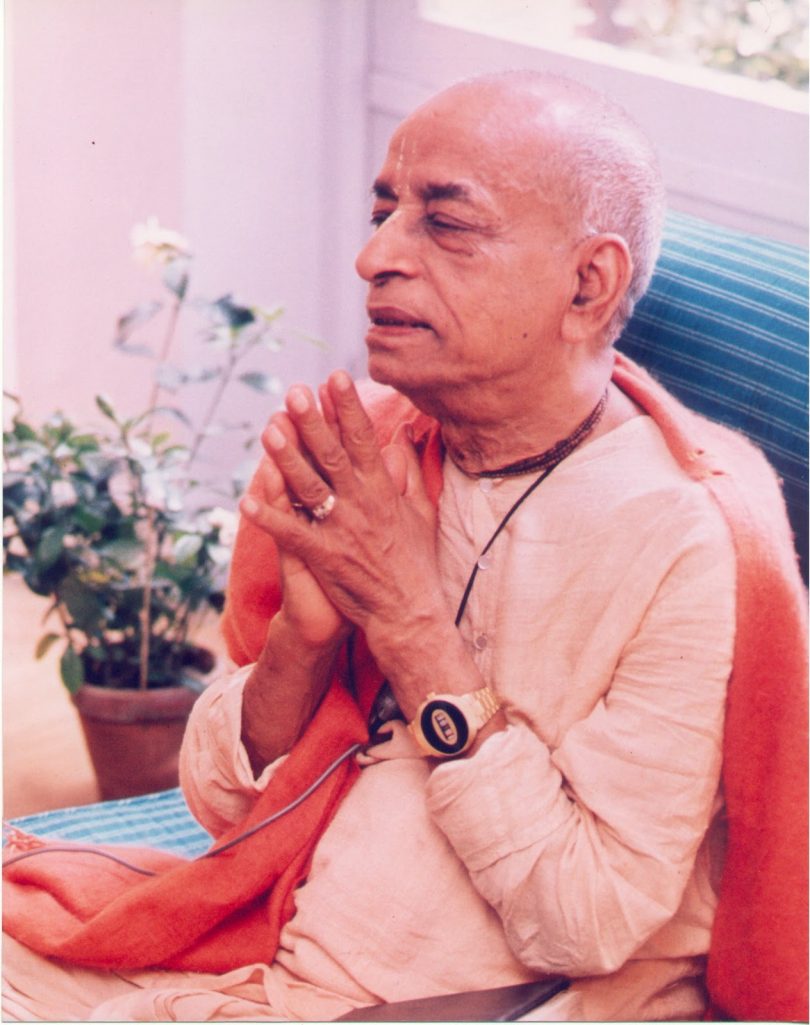Q. What is the exact meaning of pure devotional service? How can we perform this without expectation?
Answer by Romapada Swami: Srila Rupa Goswami gives the definition of pure devotional service in Bhakti Rasamrta Sindhu 1.1.11 (Nectar of devotion) as below:
anyabhilasita-sunyam
jnana-karmady-anavrtam
anukulyena krsnanu-
silanam bhaktir uttama
*”One should render transcendental loving service to the Supreme Lord Krsna favorably and without desire for material profit or gain through fruitive activities or philosophical speculation. That is called pure devotional service.”*
In SB Third Canto, Twenty-ninth Chapter, verses 12 and 13, Srila Kapiladeva, while instructing His mother, has given the following characteristics of pure devotional service: “My dear mother, those who are My pure devotees, and who have no desire for material benefit or philosophical speculation, have their minds so much engaged in My service that they are never interested in asking Me for anything—except to be engaged in that service. They do not even beg to live in My abode with Me.”
Further characteristics of devotional service are described by Rupa Gosvami with evidences from different scriptures. He states that there are six characteristics of pure devotional service, which are as follows:
(1) Pure devotional service brings immediate relief from all kinds of material distress.
(2) Pure devotional service is the beginning of all auspiciousness.
(3) Pure devotional service automatically puts one in transcendental pleasure.
(4) Pure devotional service is rarely achieved.
(5) Those in pure devotional service deride even the conception of liberation.
(6) Pure devotional service is the only means to attract Krsna.
Krsna is all-attractive, but pure devotional service attracts even Him. This means that pure devotional service is even transcendentally stronger than Krsna Himself, because it is Krsna’s internal potency.
So for devotional service to be called pure devotional service there are some necessary components:
The positive ones or the do’s –
Krsna – It must be done for the pleasure of Krsna, His expansions or His pure devotees.
Anusilanam – devotional service is a cultivation or practical engagement by following the predecessor acaryas. It is not just a sentiment.
Anukulyena – it must be favorable to Krsna that means Krsna must actually be pleased and devotee’s attitude must be favorable. For example, Kamsa also remembered Krsna 24 hours a day but his remembrance was not pleasing to Krsna though his activity of remembrance of Krsna was good.
A devotee must know what Krsna wants him to do and this understanding can be achieved through the medium of a spiritual master who is a bona fide representative of Krsna. One who is serious in wanting to render pure devotional service to the Lord must take shelter of a spiritual master who comes in the disciplic succession from Krsna and take direction from him. A pure devotee has no plans other than those for the Lord’s service. He is not interested in attaining success in mundane activities. He simply wants success in the progress of devotional service. So by following the direction and instructions of a pure devotee we can be assured that we are doing favorable devotional service to the Lord.
The negatives or don’ts are –
jnana – devoid of impersonal philosophical/mental speculation
karma – devoid of fruitive materialistic or ritualistic activity/desire
anyabhilasita sunyam – devoid of any other desire other than to please
Krsna.
Anavrtam – not covered
To read further about pure devotional service please refer to Nectar of devotion – chapter one.
The second part of your question was how to perform devotional service without any expectations:
Our expectation while performing devotional service is that Krsna must be pleased. In this way we can give up all other selfish motivations.
*Krsna tells us in Bhagavad Gita how to work without expectation in 2.4*7, Lord Krishna says, “You have the right to perform your prescribed duty, but you are not entitled to the fruits of action. Never consider yourself the cause of the results of your activities, and never be attached to not doing your duty.”
Krishna is not saying here that the results should be ignored or that the duties be carelessly performed without concern for the results. What He is saying is simply that we are not entitled to be the enjoyer of the fruits of our duties or services. They are meant to be dedicated to Him.
Krishna is the actual beneficiary or enjoyer of the results. This is only natural, because Krishna is the actual proprietor of everything, including the strength and intelligence with which we perform our work. Motivation for work in this case comes not from the expectation of how the results will benefit oneself, but from the expectation of pleasing Krishna, which is far more satisfying, and hence far more motivating than any meager material achievements.







